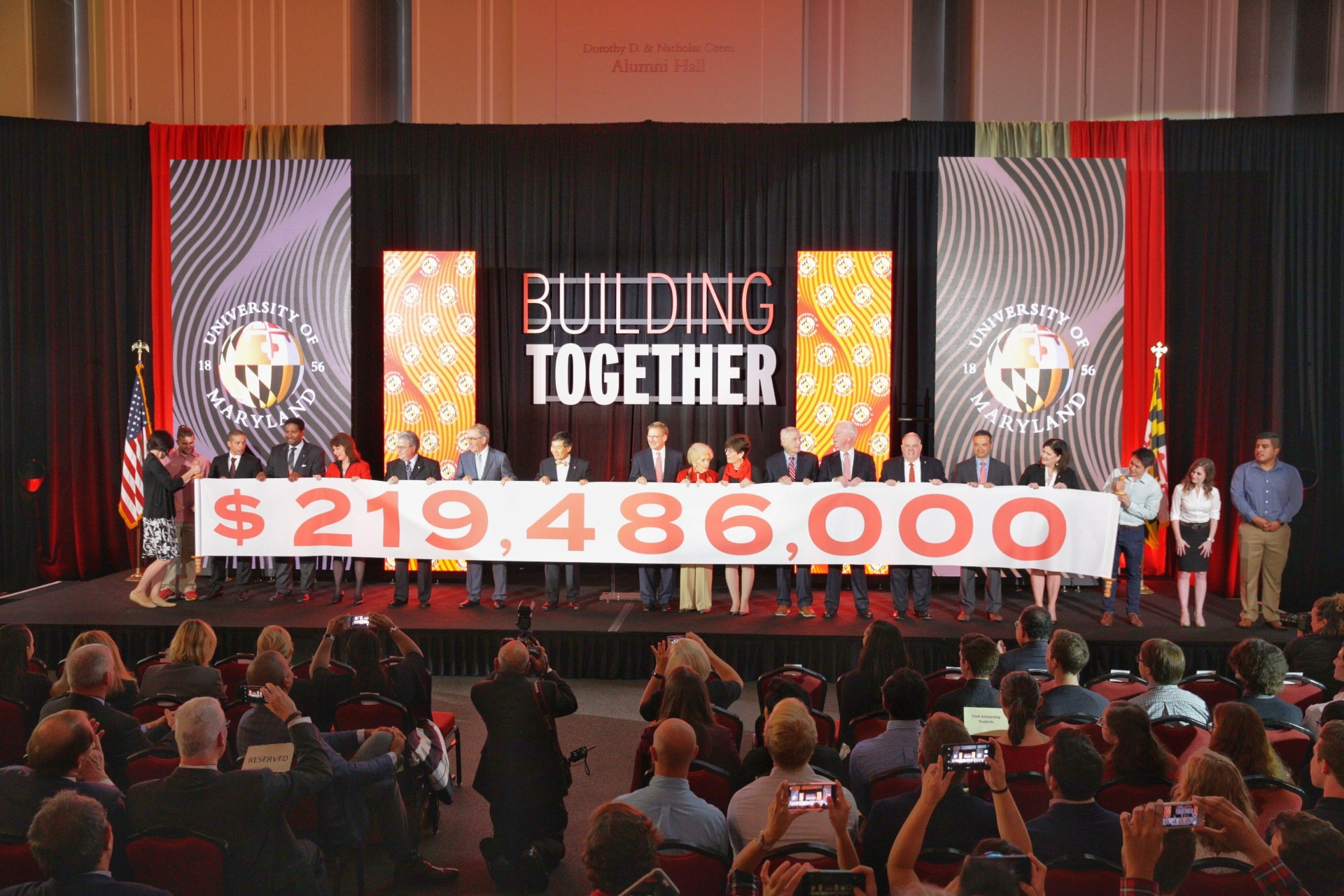Views expressed in opinion columns are the author’s own.
Last Wednesday, the major poles of Maryland political power descended on the University of Maryland to make a super-special announcement. With Gov. Larry Hogan and Maryland House Speaker Mike Busch at his side, university President Wallace Loh unveiled a massive $220 million investment, courtesy of the A. James and Alice B. Clark Foundation. Hogan claimed the donation, the largest gift this university has ever received, marked “the most important day in the history of this university.”
About half of the investment will expand need-based aid for university students. This is an unalloyed good, and Loh, the Clarks and everyone who contributed to this project deserve real commendation for their commitment and generosity. Maryland has traditionally devoted far less of its higher education budget to need-based aid than states such as Pennsylvania and New Jersey. The Clark donation brings us closer to meeting our obligation to low-income students.
[Read more: University of Maryland to receive $219.5 million donation — the largest in its history]
But the rest of the donation primarily targets our engineering program: Funds will expand our program for postdoctoral engineering fellows, build new engineering facilities and supply grants to high-achieving engineering students.
The investment is in the spirit of this university’s pre-existing STEM bias. The second-largest donor project in this university’s history is the Brendan Iribe Center for Computer Science and Innovation, and Loh has repeatedly advocated transforming College Park into the “Silicon Valley of Maryland.”
It’s clear this university and its donors have caught the pedagogical fever sweeping the nation: STEM favoritism. This focus is misguided. Although a college education delivers more than instrumental value, the STEM fever is unwise even according to the materialist logic of its boosters. The promise of a STEM degree — secure employment in a rapidly growing field — is a canard. Because, despite the hype, the job market for STEM graduates simply isn’t that vibrant.
Between December 2014 and January 2016, the engineering workforce grew only 0.6 percent, while the workforce at large grew 7 percent. The Census Bureau found that one in four individuals with STEM bachelor’s degrees are employed in a STEM field. According to Rutgers sociologist Hal Salzman, “All credible research finds the same evidence about the STEM workforce: ample supply, stagnant wages and, by industry accounts, thousands of applicants for any advertised job.”
We do students a real disservice by pretending a STEM degree is a ticket to prosperity, and we do the United States a disservice by misallocating our educational resources. Encouraging students to devote the preponderance of their education to a narrow STEM concentration — say, petroleum engineering or software development — benefits neither our students nor our nation.
Harvard’s Claudia Goldin and Lawrence Katz observed that, in the 19th century, countries like France and Britain focused on narrow, skill-based education. The United States, on the other hand, was committed to a broader liberal arts pedagogy, which primed our citizenry for the tumult of the 20th century.
America became the economic behemoth of the last century because our educational system prepared citizens for changing times. In an economy defined by instability, a broad-based education is a lifeboat. While the market demands petroleum engineers today, climate change and renewable technologies may force the petroleum industry out of existence in the next several decades. As we wade into uncertain economic waters, the economy will reward the well-rounded and adaptable. And if we devote ourselves primarily to STEM, we could become a nation trained for the jobs of yesteryear while paralyzed before tomorrow’s challenges.
[Read more: UMD officials virtually break ground for Brendan Iribe Center]
While I’m sure university administration’s STEM favoritism is sincere, it’s hard to ignore wealthy donors’ pernicious influence on our educational direction. This university is subject to the passions and priorities of Brendan Iribe, Kevin Plank and the Clark foundation. Sometimes donors do real good — need-based aid is a boon to our entire community — but often, this university’s cadre of bigwig boosters leads us astray. Donors pushed the university into the foolish Cole Field House renovation and continually encourage this administration’s STEM bias.
STEM fever is distorting this university’s educational mission. Both donors and administration must adjust. If we are to righten our educational path, donors must wisen to STEM’s limits and administration should reject the temptation to sacrifice our integrity for donor cash.
Max Foley-Keene, opinion editor, is a sophomore government and politics major. He can be reached at opinionumdbk@gmail.com.



